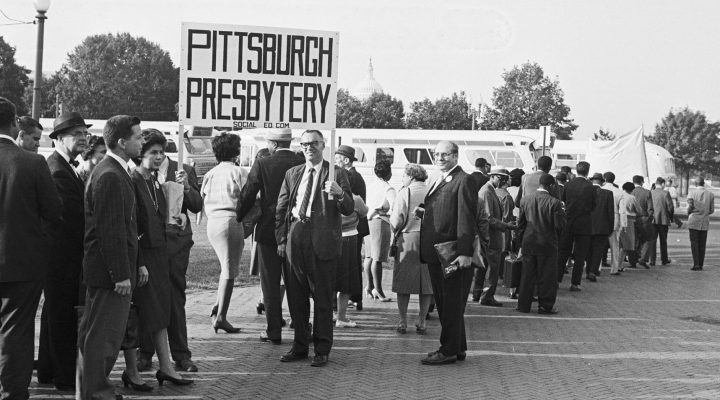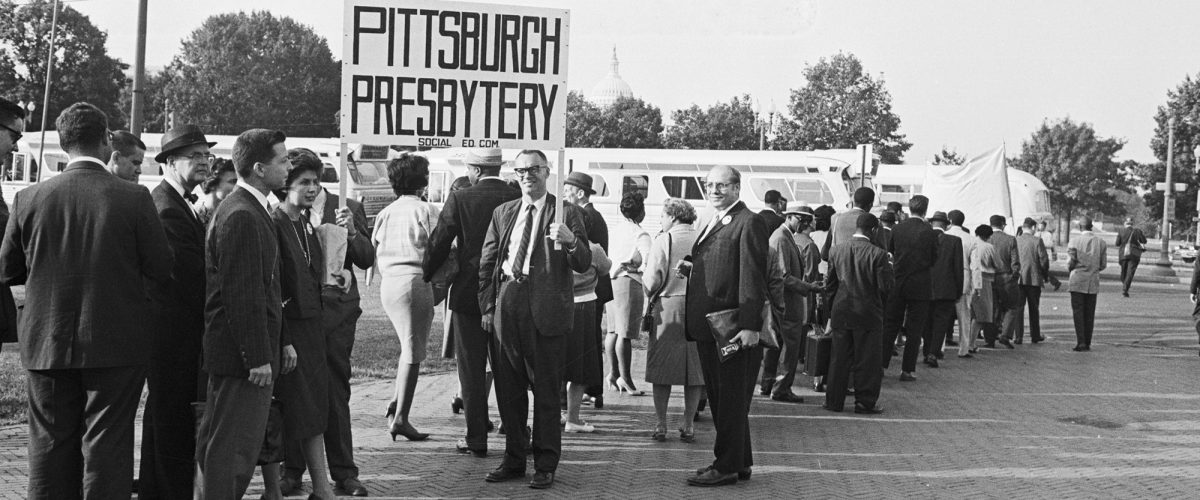Sixty years ago, the March on Washington might not have happened were it not for the influence of a gay activist named Bayard Rustin, according to the author of a new biography of Martin Luther King Jr.
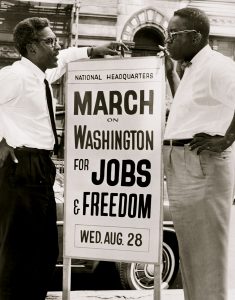
March on Washington Deputy Director Bayard Rustin (1987 – 1987) (left) and Administrative Committee Chairman Cleveland Robinson (1914 – 1995) talk on either side of a sign advertising the March in 1963. (Photo by Buyenlarge/Getty Images)
“Bayard Rustin was key in organizing the March. You know, we didn’t have the internet back then. Rustin was a brilliant organizer, and King recognized his contributions and how much he brought to the table. King recognized that he had a lot to learn from Rustin and he showed it,” said Jonathan Eig, author of King: A Life.
“They had to send flyers and letters to churches all over the country and offer help in chartering buses to bring people in,” the author explained. “Special train lines were established from different cities to get people to Washington and then negotiating with the government to make sure there would be security, to make sure it would be safe, and that there would be bathrooms.”
At that time, “70% of Americans were opposed to the March on Washington,” Eig said. “Let’s remember they thought violence was going to erupt at this thing because they’d seen images on TV of protests that had erupted in violence. So, there was great fear about it.
“It’s also worth remembering that this was called the March on Washington for Jobs and Freedom. This was about economics. This was about income inequality. This was about reparations. It was not just a ‘come together and play the guitar and sing songs.’ This was radical politics here.”
As the nation turns its attention to Washington, D.C., this weekend for the 60th anniversary of that historic civil rights march, Eig wants modern Americans to understand an event celebrated today was deemed a threat when it happened.
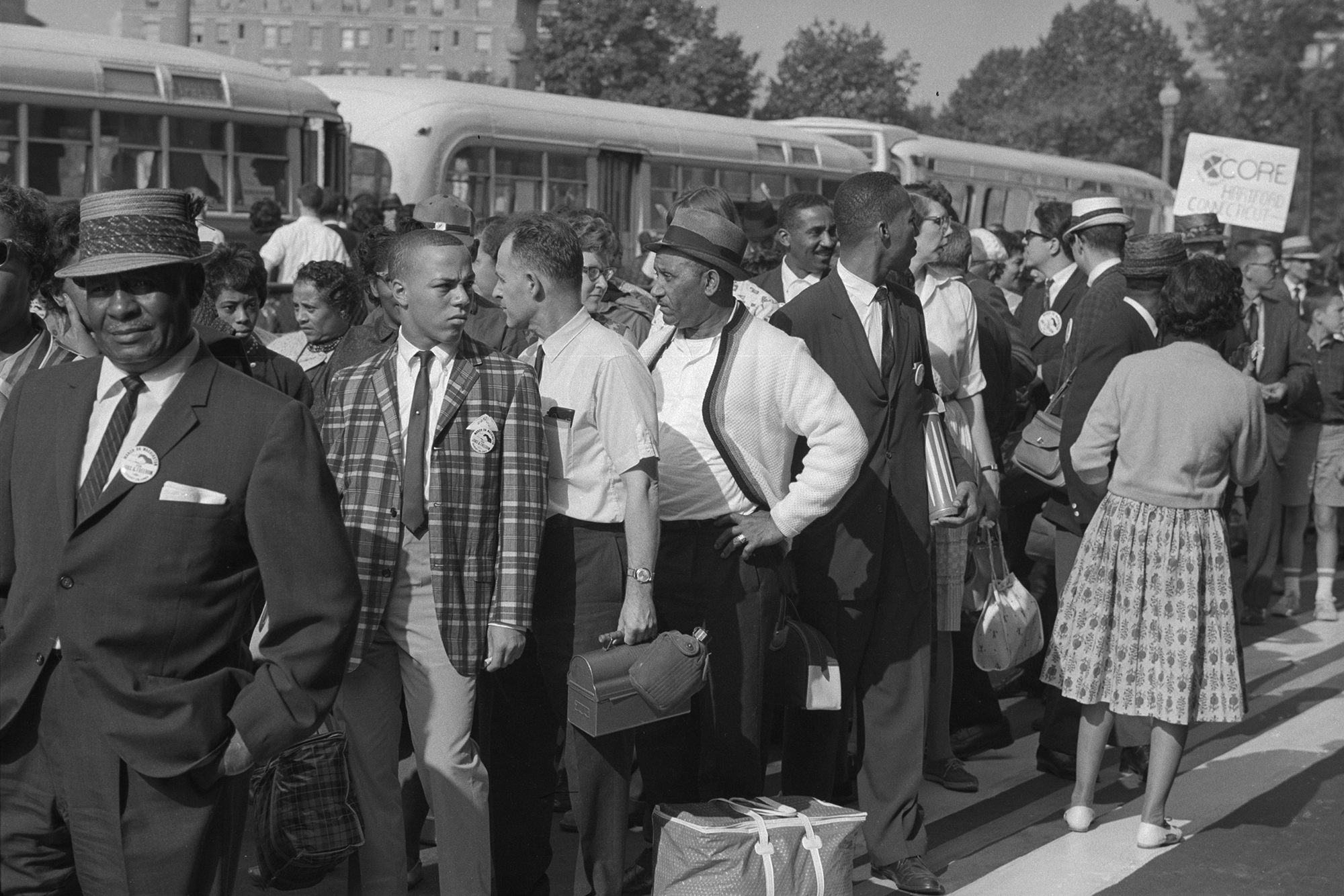
Marchers arrive by bus holding a “CORE Downtown” sign before the March on Washington on August 28, 1963 in Washington DC. (Photo by Marion S Trikosko/Library of Congress/Getty Images)
Eig is a former senior writer for The Wall Street Journal. He is the bestselling author of other books, including biographies of Muhammad Ali, Lou Gehrig and Jackie Robinson.
He got the idea for the King book while working on the biography of Ali.
“I’m interviewing people for my Muhammad Ali book, and they start talking about Martin Luther King. And I just had this awakening that, wow, these people knew Martin Luther King,” he said. “And there’s still dozens, maybe hundreds, of people alive who knew Martin Luther King.
“We treat him now as if he’s this biblical figure, and as if he’s so remote and lost to history.”
“We treat him now as if he’s this biblical figure, and as if he’s so remote and lost to history. And in some ways the national holiday has contributed to that in turning him into an icon and losing sight of his humanity. And I thought if I had the opportunity to interview people who knew him and could restore some of that humanity, I would be doing a great service.”
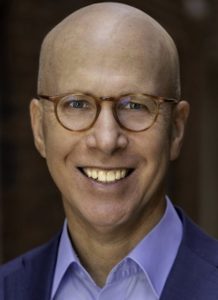
Jonathan Eig
Eig started working on the book before COVID hit interviewing people all over the country, traveling around saying, “Tell me about Martin Luther King. Tell me what he was like. Tell me what it was like to be in the room with that man.”
That became a journey of discovery for Eig, who was impressed with King’s journey of discovering and living out a calling for God and neighbor. King’s is “the life of somebody who truly not just believed but acted on his beliefs,” he said. “That really inspired me.”
“In the deepest sense, he was always trying to live up to ‘it.’ He was an incredibly busy, incredibly stressed person. His schedule was ridiculous. You know, he was giving hundreds of speeches and sermons a year. He really felt like he single-handedly had to raise the money required to operate the Southern Christian Leadership Conference.
“So, where he found time to be spiritual, where he found time to pray and to read, it’s hard to know. But I think he found it sometimes in expressing himself. And, you know, I think he was most happy and most comfortable when he was in the pulpit. And he always said, ‘I’m still a Baptist preacher, no matter how many jobs I may have.’ Fundamentally, I always think of myself as a Baptist preacher.”
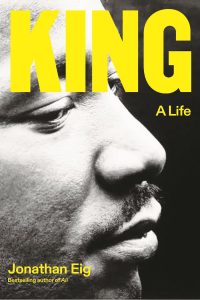 King believed his job was to preach to the nation, not just to a Sunday congregation, Eig added. “I think that’s what kept him going. And that’s how he maintained his faith — by thinking of himself as somebody who was called to speak to the world.”
King believed his job was to preach to the nation, not just to a Sunday congregation, Eig added. “I think that’s what kept him going. And that’s how he maintained his faith — by thinking of himself as somebody who was called to speak to the world.”
Eig’s main purpose for writing the book was to highlight King’s voice.
On this anniversary of the March on Washington, Eig hopes the world will remember King’s words and his distinctive, booming voice.
“I wanted to let King’s words resonate. I’m hoping we will hear King’s words again and think of them anew and see them freshly and think about how they resonate in our lives today. I didn’t want to do that in a heavy-handed way. I wanted to just step back and let King have the last word.”
Related articles:
5 ministers reflect on the 60th anniversary of the March on Washington

